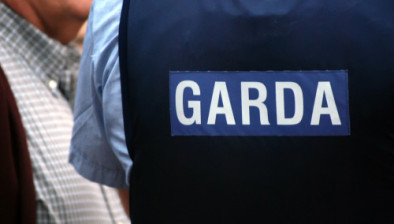Legal clarification on EU driving licences flagged to Northern Ireland lawyers

Northern Ireland lawyers have been advised to take note of a court decision to overturn a conviction for driving without a licence.
The Criminal Cases Review Commission (CCRC) is highlighting to the legal profession a point of law in a referral made in June 2024 to the County Court in Northern Ireland.
Stefan Stefanov was convicted in April 2022. He had provided police with a Bulgarian driving licence when he was pulled over in January 2022.
Mr Stefanov was prosecuted for driving without a licence on the basis that his Bulgarian driving licence only entitled him to drive in Northern Ireland for a year after he became a resident.
A key consideration in the CCRC review was whether this was correct as a matter of law.
The conviction was quashed by the court in September 2024.
The prosecution in the case relied on Article 55(1) of the Motor Vehicle (Driving Licences) Regulations (Northern Ireland) 1996, which provides that a person who holds a ‘relevant permit’ is only entitled to drive in Northern Ireland for a period of one year after becoming resident.
However, the definition of ‘relevant permit’ set out in Article 19D of the Road Traffic (Northern Ireland) Order 1981 does not include a ‘community licence’.
A ‘community licence’ is defined under Article 19D as “subject to certain exceptions, a document issued by an authority of an EEA State, in respect of that state, which authorises the holder to drive a motor vehicle”.
The CCRC says it is important, where an individual charged with driving without a licence has been able to produce a foreign driving licence, to establish whether that licence is a ‘community licence’.
This is because holders of ‘community licences’ benefit from the provisions of Article 15A of the 1981 Order which permit them to drive in Northern Ireland until the licence expires or until they reach the age of 70, depending on the circumstances.
Licences issued by EEA states which do not fall into the exceptions set out in Article 19D can properly be classified as ‘community licences’.
Once it has been established whether a licence is a ‘community licence’, it may be necessary to consider issues around the validity of that licence.
The European Court of Justice case of Grasser v Freistaat Bayern confirmed that if there is nothing on the face of the licence to indicate that the conditions for issue were not met, then it should be treated as having been validly issued by the relevant member state.
Having considered the European Union (Withdrawal) Act 2018, the CCRC concluded that the case of Grasser constituted ‘retained EU case law’. It followed that Article 15A should be construed in accordance with the principles set out in that case.









